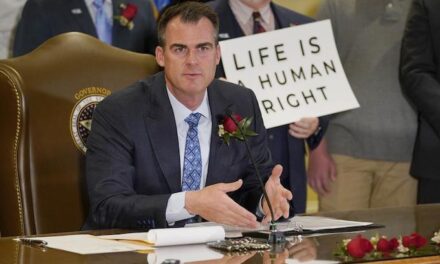A bill gaining traction in the Legislature would restrict police from stopping motorists for a broken light and require officers to identify themselves to motorists and cite a reason for a traffic stop.
It goes even further to reform police work than a bipartisan legislative package that already has won approval.
Backed by leading Black lawmakers and criminal justice change advocates, House Bill 2002 is the latest proposal this session that would make significant changes to policing. The bill is in the House Rules Committee and is slated for a public hearing at 3:30 p.m. Friday.
Among its provisions: Police would be prohibited from making arrests for about 20 misdemeanor crimes, including criminal trespassing, second and third-degree theft and interfering with public transportation.
The bill has the support of House Speaker Tina Kotek, as well the Black Indigenous and People of Color caucus in the Legislature. A number of community organizations whose missions target racial inequality in Oregon, such as the Coalition of Communities of Color and Red Lodge Transition Services, also endorse the bill.
Rep. Janelle Bynum, D-Happy Valley, chair of the House Judiciary Committee and a chief sponsor of the legislation, said that groundswell of grassroots backing sets the bill apart.
“Once of the criticisms I often have is progressives, while well-meaning, have control of the conversation and have been willing to make trade-offs or kill policies that were very important to us and now we are seeing the conversation being led by us and pushed by us and supported by our colleagues,” she said.
But police, sheriffs and prosecutors have raised questions about the bill’s implications for public safety.
In a joint letter to lawmakers this month, they said the bill “makes sweeping changes to the public safety system from initial stop, to arrest, to the sentence and to probation … all without, in our opinion, the thoughtful exchange necessary to ensure these reform driven measures don’t result in unintended impacts and real safety risks to Oregonians.”
Proponents say the bill addresses criminal charges that police commonly use in situations that involve people who are experiencing homelessness or a mental health crisis.
“Police are constantly called for things that aren’t real public safety priorities” and those encounters can be “harmful and lethal” to Black people and other people of color, said Shannon Wight, deputy director of the Partnership for Safety & Justice.
The organization backs the bill and has played a prominent role in other criminal justice reform efforts in Oregon, including doing away with automatic referrals to adult court for juveniles charged with the most serious violent crimes.
Wight and others say curbing arrests for less serious crimes and limiting the ability of officers to stop motorists for minor traffic matters would reduce the risk of potentially deadly encounters between police and people of color.
A motorist could still receive a ticket for those violations “but you cannot pull them over,” she said. She said how authorities would issue the ticket is still being discussed by lawmakers and supporters of the bill.
The bill also would require police to make clear that people do not have to consent to a search during a stop.
Wight and other supporters of HB 2002 bill said it is intended to address stark, widespread and documented racial inequities in Oregon’s criminal justice system.
In 2019, for instance, Black people made up 52% of the Portland police Gun Violence Reduction Team’s stops in 2019, according to the city’s own data. The team stopped 1,605 drivers and pedestrians that year, accounting for about 5% of all stops.
Across the bureau, officers were significantly more likely to stop a driver for non-traffic violations if the driver was Black. Black motorists also were more likely to be searched, yet less likely than white people to be found with contraband, according to bureau reports.
Lamar Wise, political coordinator of AFSCME Council 75 and a member of Gov. Kate Brown’s Racial Justice Council, pointed to support from groups like Reimagine Oregon, a group of Black community leaders, activists and organizations that formed last year to advocate for policies and programs that address racism in housing, health care and other areas.
“This has a huge set of community behind it,” he said. “We think now is the time for legislators to be with us on making some pretty deep changes.”
But associations representing Oregon sheriffs and police chiefs issued a statement late Thursday asking that the bill be dropped because it had not been through a thorough review.
“Moving HB 2002 forward without proper vetting, discussion and policy work sets it up for failure,” Yamhill County Sheriff Tim Svenson and retired Woodburn Chief Jim Ferraris. Svenson is president of the Oregon State Sheriffs Association and Ferraris is president of the Oregon Association Chiefs of Police.
A lobbyist for the chiefs and sheriffs sent an email to the speaker’s legislative director this week asking that the bill not move forward.
Multnomah County District Attorney Mike Schmidt, who has supported other reform efforts this session, is neutral on the bill, according to his spokesman.
Deschutes County District Attorney John Hummel, who, like Schmidt, supports eliminating mandatory minimum sentences, said he likes parts of HB 2002 but strongly opposes the provision that restricts police from making arrests in certain misdemeanor cases.
He cited a hypothetical instance of a man facing a criminal trespass charge for refusing to leave the yard of a woman and her children. He said police should have the option of taking the man into custody if he refuses to go.
“I can’t support a bill that would allow a dangerous person to remain in someone’s backyard terrorizing kids,” he said.
The bill would do other things as well, including end government fees for people who are on some form of court supervision, a practice that proponents say consigns people to poverty when they are getting out of jail and prison.
It also would allow authorities to shorten the term of post-prison supervision for people who are doing well.
And it redirects money to groups that provide culturally specific services, as well as increases money for victims’ services and prioritizes those services for people of color who are victims of crime.
So far a slate of bills aimed at reforming policing is moving through the Legislature this session.
Those bills would weed out people who aren’t fit to wear a police uniform, as well as call on police to investigate potential gender-based hate crimes, require officers to report misconduct by colleagues, train officers to perform CPR and call for emergency medics if someone suffers medical distress while restrained.
Bynum said HB 2002 stands out even among those reforms.
“It’s forward progress with the voices of people of color leading the conversation,” she said.
— Noelle Crombie
©2021 Advance Local Media LLC. Visit oregonlive.com. Distributed by Tribune Content Agency, LLC.
—-
This content is published through a licensing agreement with Acquire Media using its NewsEdge technology.



















I.A.W. U.S. Census & FBI (Table 43a)
Black males make up about 6% of the U.S. population but every year commit ~53% of all the murders and ~55% of all robberies in the U.S…
Every year in the U.S. there are ~5,000 African-Americans men, women and children killed and 93% of them were killed by fellow African-Americans.
“Black Lives Matter”? To whom? Apparently not to other Blacks.
“Black people make up 23% of Portland’s population, but they commit 75% of all shootings. … Whites are 33% of the city’s population, but they commit fewer than 2% of all shootings…
“These disparities mean that virtually every time that police in Portland, Oregon are called out after a shooting, they are being summoned into minority neighborhoods looking for minority suspects.”
Profiling? “If a Dalmatian has been biting the children in the neighborhood,
I think we’re going to look for a black and white dog.”
In the end the airheads in the Oregon Legislature, will make innocent people of color, victims of the criminals on the street. Great job communist Legislature!
When will the stupidity STOP? You either want LAW & ORDER or you prefer chaos.
More and more, it seems the left does NOT WANT this to ever stop.. PERIOD.
Do away with all interaction between the police and the citizenry, Stop arresting anyone for anything, just get rid of all law enforcement! Allow everyone to do whatsoever they please, wherever, however, whenever, and to whomever. INSANITY!! “Fools and blind!”
AND as i keep saying. IF THERE IS No laws going to be enforced
then we can also get rid of
ALL LAW MAKERS!
I guess all the non-criminals in Oregon better get guns so the battlefield between them & the criminals will be equalized.
For their own sake, I would hope every person, even left-wing nutjobs, would have enough brains & sense of survival to take whatever aggressive action they deem necessary to protect themselves, their family & property.
Might be useful for Oregon citizens to show the nation what happens when criminals are allowed by govt to freely thieve, rape, assault, threaten & prey on the public at large.
When average citizens are forced by govt to fend off criminals creeping around their homes, scaring / threatening them & their kids & stealing their property then there will be a lot of criminals shot dead in justified killings.
Untrained civilians don’t give a flip what legislature says is okay for criminals to get away with when it comes to protecting themselves & their property.
No point in figuring out how to issue traffic / vehicle violation tickets since most of the dead criminals in the news lately have outstanding felony or misdemeanor arrest warrants for failing to pay or appear in court for tickets or any other charges.
If no stops are allowed for routine traffic / vehicle violations then not only are they a danger to the driving public but wanted criminals & fugitives are free to drive around with their drugs, illegal guns & rape / burglary kits.
IF THEY had that much sense left, the wouldn’t keep voting IN THESE COMMUCRATS…